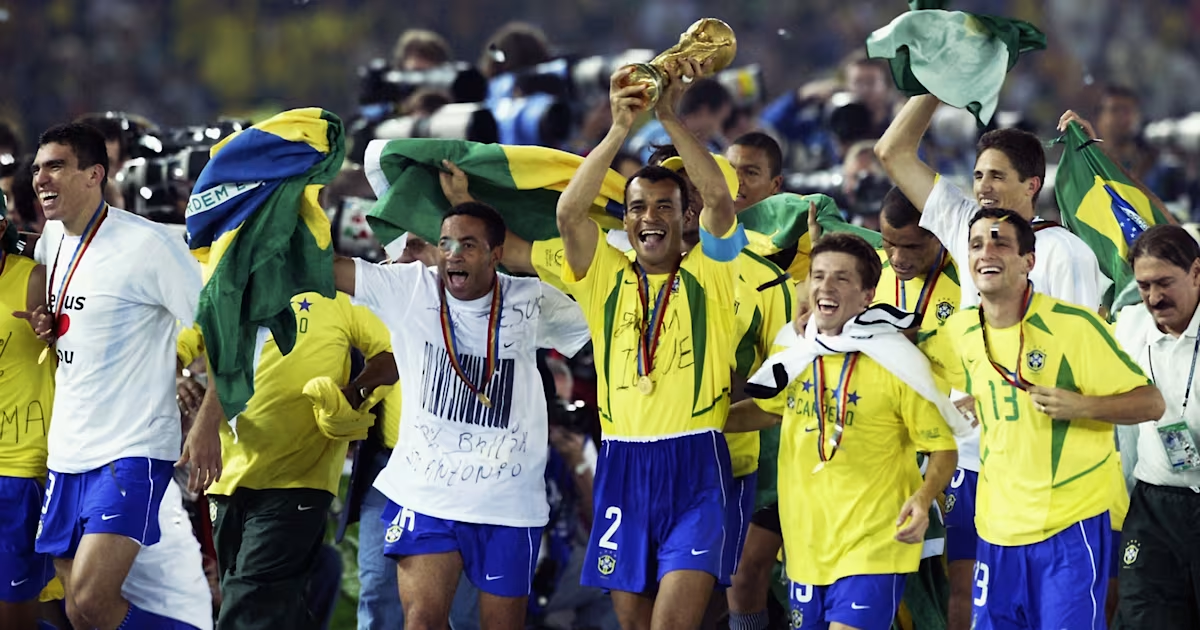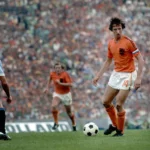When it comes to World Cup glory, no nation has stamped its authority quite like Brazil. With five titles under their belt, they don’t just play football — they live it. From dazzling footwork to unforgettable goals, Brazil World Cup wins are more than stats — they’re moments etched in history. But why does this nation continue to stand above the rest?
This article uncovers the driving forces behind Brazil’s unmatched success, exploring the players, culture, and style that shaped their journey to becoming football royalty. Whether you’re a seasoned fan or new to the sport, you’ll find plenty of insight into what keeps Brazil at the summit of world football.
A Legacy Built on Dominance
Brazil’s rise in World Cup history isn’t a fluke. It’s the result of consistent excellence, raw talent, and a nationwide obsession with the game. The country has clinched the FIFA World Cup five times — in 1958, 1962, 1970, 1994, and 2002 — more than any other nation.
The secret behind this dominance lies in their fearless style. Brazilian teams have always played with flair, skill, and rhythm that seem more like art than sport. Their football philosophy is centered on attacking brilliance, creative expression, and freedom — all nurtured from the streets of Rio to professional academies.
The team’s success isn’t built just on talent but on tradition. Young players grow up idolizing legends like Pelé, Zico, Ronaldo, and Ronaldinho, dreaming of one day adding to Brazil’s trophy cabinet. That deep-rooted football culture fuels ambition and passion like no other.
The Golden Eras of Brazil’s World Cup Success
Each of Brazil’s World Cup wins tells a different story — shaped by unique generations of talent and shifting global tactics.
- 1958 & 1962 – The Pelé Era: A 17-year-old Pelé lit up the 1958 World Cup in Sweden, becoming the youngest player to score in a final. By 1962, Brazil defended their crown with Pelé injured, proving their depth and cohesion.
- 1970 – Total Brilliance in Mexico: Often called the greatest team ever, Brazil’s 1970 squad, led by Pelé, Jairzinho, and Tostão, showcased pure football magic. Their seamless passing, movement, and vision captivated fans worldwide and set a benchmark for excellence.
- 1994 – The Dunga Generation: After a 24-year drought, Brazil returned to the top with a more pragmatic team. The focus was on structure, discipline, and key moments — with Romário and Bebeto providing the spark.
- 2002 – The Ronaldo Redemption: A legendary comeback saw Ronaldo, Rivaldo, and Ronaldinho power Brazil to their fifth title in Japan/South Korea. Ronaldo’s eight goals, including two in the final, made it a tournament to remember.
Each era brought different strengths, but one constant remained — Brazil’s relentless hunger to win and entertain.
The Role of Street Football and Local Culture
In Brazil, football isn’t just a sport — it’s a way of life. Kids grow up playing on beaches, backyards, and dusty alleyways. These informal games, known as peladas, are the breeding ground for creativity and technical mastery. Unlike structured academies, street football teaches improvisation, balance, and flair — the traits that define the Brazilian style.
This early exposure to high-paced, no-rules games sharpens instincts and develops confidence. It’s no coincidence that legends like Neymar, Romário, and Garrincha all came from humble beginnings, learning the game in the rawest form possible. That foundation creates not just skill, but passion and resilience that shine on the world stage.
Football culture is deeply embedded in daily life — from school breaks to weekend matches. Family support and local pride create a strong emotional bond with the game. This connection fuels a competitive spirit and a deep desire to represent the national team with pride.
World-Class Player Development Systems
Brazil doesn’t rely on luck to produce stars. Over the decades, it has developed a robust pipeline of talent through youth academies, local clubs, and national scouting systems. Renowned clubs like Santos, Flamengo, São Paulo, and Palmeiras act as nurseries for future icons. Their training focuses on fundamentals, flair, and discipline — a combination that ensures both entertainment and efficiency.
Scouts across the nation identify talent as early as age 7 or 8. These young players receive specialized coaching that blends tactical understanding with technical skill. Unlike many countries that over-emphasize structure, Brazil nurtures instinct. Coaches allow room for creativity and bold decisions — traits that have led to game-changing players.
Additionally, tournaments like the Copa São Paulo de Futebol Júnior serve as launching pads. They give scouts and clubs early access to future professionals. This system ensures a continuous flow of talent, maintaining Brazil’s dominance generation after generation.
Adaptability and Tactical Evolution
Contrary to the stereotype of Brazil being only about flair, the team has evolved to adapt to modern football demands. Their ability to blend artistic expression with tactical discipline is what makes Brazil so hard to beat.
In recent decades, Brazilian managers have embraced global trends in pressing, formation shifts, and defensive structure. While the 1970s were about freedom, the 1994 and 2002 teams demonstrated how Brazil could win through organization and efficiency, without losing identity.
In the 2010s, the national team started integrating European-style tactics, as most of its players now play abroad in top-tier leagues. This exposure helps them adjust to different playing styles, opponents, and strategies. As a result, Brazil is never one-dimensional — they can outplay, outpace, or outsmart their competition depending on the need.
This blend of artistry and strategy ensures Brazil remains not just exciting but consistently effective.
Iconic Players Who Shaped Brazil’s World Cup Legacy
No conversation about Brazil World Cup wins is complete without honoring the superstars who made it possible. These players didn’t just win titles — they defined eras and captured the hearts of millions.
- Pelé remains the crown jewel. With three World Cup wins (1958, 1962, 1970), he is still the only player to achieve such a feat. His power, vision, and grace set the global standard.
- Zico, though he never won a World Cup, inspired a generation with his intelligence and skill. His role in the 1982 squad left a lasting impact.
- Ronaldo Nazário, after a heartbreaking injury in 1998, stormed back in 2002 to lead Brazil to victory, securing the Golden Boot with 8 goals.
- Ronaldinho, with his jaw-dropping dribbles and unmatched creativity, brought joy and unpredictability to the 2002 squad.
- Cafu, the only player to appear in three consecutive World Cup finals, symbolized leadership and reliability.
- Neymar, the modern-day icon, continues to chase the legacy left by his predecessors, becoming Brazil’s second all-time top scorer.
These stars, and many more, didn’t just lift trophies — they created unforgettable memories and inspired future generations to dream big.
Support from a Passionate Nation
Few nations rally behind their football team with the same energy and emotion as Brazil. During a World Cup, cities pause, schools close, and streets turn yellow and green. Every game becomes a celebration — or a heartbreak.
This overwhelming national pride creates an unshakeable bond between players and fans. It boosts morale, pushes players to give their all, and builds a team spirit unmatched by most countries. Even when playing abroad, the Brazilian squad feels that support through traveling fans, watch parties, and endless chants echoing worldwide.
The pressure is real — expectations are sky-high. But that pressure often fuels performance. Players grow up knowing that wearing the yellow jersey is both a dream and a duty. That emotional connection is a powerful motivator, especially when the stakes are highest.
Influence on Global Football Culture
Brazil’s impact goes beyond winning. Their playing style, known as “jogo bonito” (the beautiful game), has shaped how the world views football. From street corners in Nairobi to stadiums in Europe, players mimic the moves and swagger of Brazilian legends.
They made football a spectacle — filled with joy, skill, and flair. The signature samba-style play introduced elegance and excitement, turning football into a performance. Fans didn’t just cheer for Brazil because they won — they admired how they played.
Coaches and analysts often refer to Brazilian tactics when discussing attacking fluidity, positional flexibility, and individual expression. Training methods inspired youth academies globally. Brazil turned football into a universal language — joyful, expressive, and fearless.
Pros & Cons of Brazil’s World Cup Legacy
Pros
- Unmatched Record: Brazil holds the most World Cup wins (five), setting the global standard.
- Consistent Talent Pipeline: New stars emerge every generation, ensuring longevity.
- Cultural Identity: Football is deeply woven into daily life, fueling passion and performance.
- Dynamic Playstyle: Brazil’s mix of flair and structure makes them entertaining and efficient.
- Global Influence: Their style has shaped football ideologies across continents.
Cons
- Pressure to Perform: The weight of expectation can lead to mental fatigue or national criticism.
- Over-Reliance on Individual Brilliance: At times, too much depends on a single player.
- Defensive Vulnerabilities: Historically, their attacking nature has occasionally exposed the backline.
- Post-2002 Drought: Despite strong squads, Brazil hasn’t added a sixth star in over two decades.
FAQs
Who has the most World Cup titles in football?
Brazil, with five World Cup wins — more than any other country.
What years did Brazil win the FIFA World Cup?
1958, 1962, 1970, 1994, and 2002.
How has Brazil maintained football dominance?
Through youth development, a football-driven culture, elite players, and tactical adaptability.
Where are most Brazilian footballers trained?
In club academies like Santos, Flamengo, and São Paulo, with strong roots in street football.
Why hasn’t Brazil won since 2002?
Changing football dynamics, stronger global competition, and pressure have played a role, though they remain strong contenders.
Will Brazil win the next World Cup?
They remain among the favorites. With rising stars and evolving tactics, a sixth title is always within reach.
Conclusion
Brazil World Cup wins are more than just historical milestones — they’re symbols of pride, artistry, and resilience. Their five titles reflect not just a team’s success, but an entire nation’s love affair with the sport. From street corners to stadiums, Brazil breathes football in a way no other nation can match.
While the road to a sixth title has been challenging, the passion remains as strong as ever. With emerging talent and a legacy of excellence behind them, Brazil is always one kick away from history.
What’s your favorite Brazil World Cup memory? Share your thoughts in the comments and spread the passion by sharing this article with fellow fans.










